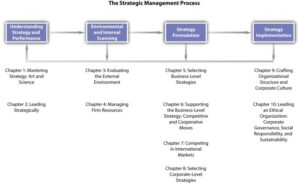
Behavioral interview questions are a crucial element in the hiring process, designed to reveal how candidates have handled past situations and challenges. These questions not only help assess a candidate’s skills but also provide insight into their personality and decision-making processes.
By understanding the significance of behavioral questions, you can better prepare for interviews and enhance your chances of landing the job you desire. With the application of the STAR method—Situation, Task, Action, Result—candidates can articulate their experiences effectively, showcasing their capabilities in various scenarios.
Understanding Behavioral Interview Questions
Behavioral interview questions are designed to evaluate a candidate’s past experiences and how those experiences shape their future behavior in the workplace. These questions are significant in the hiring process as they provide insights into a candidate’s problem-solving abilities, teamwork, leadership skills, and overall fit for the company culture. By focusing on real-life examples, employers can assess whether a candidate is likely to succeed in the role they’re applying for.The key difference between behavioral and traditional interview questions lies in their focus.
Traditional questions often revolve around hypothetical scenarios and general inquiries about qualifications, while behavioral questions ask candidates to describe specific instances from their past. This approach yields more reliable information on how candidates have handled situations, aiding employers in making informed hiring decisions.One effective way to respond to behavioral interview questions is by using the STAR method. The STAR method stands for Situation, Task, Action, and Result, a structured approach that helps candidates clearly articulate their experiences.
By outlining the situation and the tasks they faced, detailing the actions they took, and sharing the results of those actions, candidates can present their experiences in a compelling and organized manner.
Common Behavioral Interview Questions
There are several common behavioral interview questions that frequently arise across various industries. These questions often aim to uncover how candidates react under pressure, work in teams, or demonstrate leadership. Here are a few examples:
- Describe a time when you faced a significant challenge at work. How did you handle it?
- Can you provide an example of a successful project you led? What was your role?
- Tell me about a time when you had to work with a difficult team member. How did you manage the situation?
- Share an instance where you had to adapt to a major change in the workplace.
To tailor responses for different job roles, candidates should focus on the specific skills and competencies required for the position. For instance, an applicant for a managerial role might emphasize leadership and conflict resolution experiences, while someone applying for a technical position could highlight problem-solving and analytical skills.Preparing answers to behavioral questions based on past experiences requires reflection and practice.
Candidates should identify key experiences that showcase their strengths, align those experiences with the job requirements, and rehearse articulating their stories using the STAR method.
Behavioral Interview Questions in Business Innovation
Behavioral interview questions can effectively reveal a candidate’s innovative thinking and ability to adapt to changing circumstances. Creative problem-solving is essential in today’s fast-paced business environment, and employers seek candidates who can demonstrate these qualities through their past experiences.Adaptability is a crucial trait assessed through behavioral questions. Candidates should provide examples that highlight their creativity in overcoming obstacles or developing new solutions.
Employers value responses that illustrate a willingness to take calculated risks and think outside the box.Here are some examples of behavioral questions designed to assess innovation and problem-solving skills:
- Describe a time when you introduced a new idea or process that improved your team’s performance.
- Can you provide an example of a difficult problem you solved creatively?
- Tell me about an instance where you had to pivot your approach due to unforeseen circumstances.
International Business and Cultural Considerations
Cultural differences can significantly influence how candidates respond to behavioral interview questions. Understanding these nuances is essential for interviewers, especially in international business contexts, where diverse backgrounds may affect communication styles and perspectives.Strategies for interviewing candidates from diverse backgrounds include being aware of cultural norms, adjusting questions to be more inclusive, and offering a comfortable environment for candidates to share their experiences.
Interviewers should approach discussions with an open mindset, recognizing the value of varied viewpoints.Examples of behavioral questions that address international business scenarios might include:
- Can you describe a situation where you worked with a culturally diverse team? What challenges did you face?
- Tell me about a time when you had to navigate a cultural misunderstanding.
- Share an experience where you adapted your communication style to connect with an international colleague.
Utilizing Behavioral Questions in Job Search Techniques
Candidates can leverage behavioral questions to highlight their qualifications and experiences effectively during the job search process. Understanding how to articulate past experiences not only prepares candidates for interviews but also enhances their resumes and cover letters.Best practices for discussing past experiences in resumes and cover letters include using concise language and focusing on results. Candidates should cite specific outcomes achieved in previous roles, especially those that align with the desired position.Skills that can be highlighted through behavioral interview responses encompass a wide range of competencies, including:
- Leadership and teamwork abilities
- Problem-solving and analytical thinking
- Adaptability and resilience
- Effective communication and interpersonal skills
Behavioral Interviews in Business Management
Behavioral interviews play a vital role in assessing leadership qualities in management candidates. Through targeted questions, employers can evaluate how potential managers handle challenges and lead teams.Examples of behavioral questions relevant to management positions include:
- Describe a time when you had to implement a change in your team. What was your approach?
- Can you provide an example of how you motivated a team during a challenging project?
- Tell me about a situation where you had to resolve a conflict between team members.
Evaluating candidate responses to these questions involves looking for evidence of effective leadership, decision-making skills, and an understanding of team dynamics.
Marketing Direct and Behavioral Interviews
Behavioral questions can assess key competencies in marketing, such as creativity, analytical skills, and the ability to work collaboratively. Marketers often need to think creatively and respond to market changes, making these questions particularly relevant in the field.Examples of behavioral questions that target marketing skills include:
- Share an example of a successful marketing campaign you developed. What was your strategy?
- Describe a time when you had to adjust your marketing approach based on customer feedback.
- Can you provide an instance where you collaborated with other departments to achieve a marketing goal?
The relationship between behavioral responses and successful marketing strategies lies in the ability to extract insights from past experiences that inform future marketing decisions.
Building Business Networks through Behavioral Interviews

Behavioral questions can help assess networking skills, which are crucial for building strong professional relationships. Effective communication and collaboration are key aspects of networking, and candidates should articulate their experiences in these areas.Tips for creating a strong professional network through effective communication in interviews include showcasing relational experiences and demonstrating genuine interest in others’ perspectives. Candidates should illustrate how they have successfully built and maintained professional relationships.Examples of behavioral questions that focus on collaboration and networking include:
- Describe a time when you leveraged your network to achieve a goal.
- Can you share an experience where you assisted a colleague in expanding their professional connections?
- Tell me about a project where teamwork played a crucial role in its success.
Behavioral Interviewing in Sales Management
Behavioral questions can effectively identify successful sales strategies and techniques. Understanding how candidates have approached sales challenges in the past provides insights into their potential for future success.A list of behavioral questions specific to sales roles might include:
- Describe a time you exceeded your sales targets. What strategies did you use?
- Can you provide an example of how you handled a difficult client?
- Tell me about a situation where you had to learn about a new product quickly to make a sale.
Analyzing candidate answers involves assessing their adaptability, persistence, and creativity in overcoming sales challenges.
Risk Management and Behavioral Interviews
Behavioral questions are significant in evaluating risk management skills, as they reveal how candidates approach decision-making and risk assessment. Employers look for candidates who can navigate uncertainty effectively.Examples of questions that focus on decision-making and risk assessment include:
- Describe a time when you had to make a tough decision with limited information. What was the outcome?
- Can you share an experience where you identified a potential risk in a project? How did you address it?
- Tell me about a situation where you learned from a past mistake in risk assessment.
Candidates can demonstrate their risk management capabilities by discussing specific strategies they employed to mitigate risks in their previous roles.
The Role of Behavioral Questions in Workplace Communication

Behavioral interview questions can assess communication skills, both verbal and non-verbal. Candidates’ responses reveal how they convey ideas and interact with others in a professional environment.Examples of questions that evaluate communication abilities include:
- Describe a time when you had to explain a complex concept to a non-expert. How did you ensure they understood?
- Can you provide an example of how you handled a miscommunication in the workplace?
- Tell me about a situation where effective communication led to a successful outcome.
Candidates can showcase their communication style through their past experiences, highlighting their ability to engage with diverse audiences effectively.
Enhancing Business Productivity through Behavioral Insights
Understanding behavioral interview responses can improve team productivity by identifying candidates who align with the company’s values and work style. The correlation between candidate behavior and job performance is crucial for organizational success.Examples of questions that predict productivity and efficiency in candidates might include:
- Describe a time when you improved a process that increased your team’s productivity.
- Can you share an experience where you successfully prioritized tasks to meet a tight deadline?
- Tell me about a situation where you took initiative to solve a problem that impacted productivity.
By focusing on these areas, organizations can enhance overall productivity and create a more effective workforce.
Closure
In conclusion, mastering behavioral interview questions is essential for both candidates and interviewers alike. By focusing on past experiences and applying effective strategies, candidates can present themselves more compellingly, while employers can identify the best fit for their teams. Remember, the right questions can lead to the right hires, paving the way for enhanced workplace success.
Question Bank
What are behavioral interview questions?
Behavioral interview questions are inquiries that ask candidates to share past experiences to demonstrate their skills and behaviors in workplace scenarios.
How should I prepare for behavioral interview questions?
Prepare by reflecting on your past experiences and using the STAR method to structure your answers to highlight relevant skills and accomplishments.
Why are these questions important in interviews?
They help employers predict a candidate’s future behavior and performance based on past actions, providing valuable insights into their potential fit for the role.
Can behavioral questions vary by industry?
Yes, different industries may focus on specific competencies; tailoring your responses to reflect the skills relevant to the job is crucial.
What if I don’t have a specific experience to share?
If you lack direct experience, consider discussing a similar situation or a transferable skill that illustrates your capabilities.




